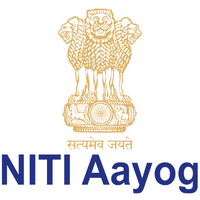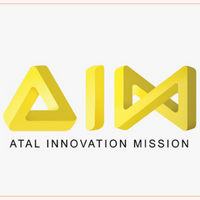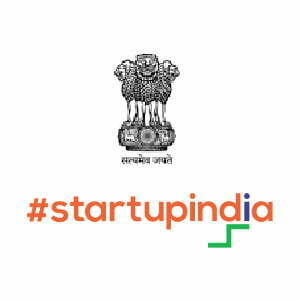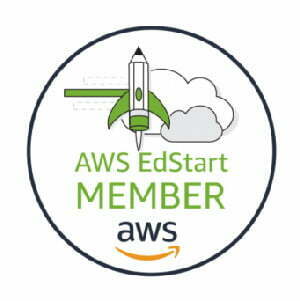Real-Life Applications of 8th Class NCERT Maths
For most Class 8 students, the maths NCERT 8th class book feels like a collection of problems to be solved before exams. Equations, theorems, and word problems often stay confined to notebooks rather than extending into real life. But what if I told you that the concepts you’re learning today — percentages, geometry, linear equations — are the same ones professionals use daily in careers like engineering, finance, technology, and even creative fields?
Math is not just about passing exams; it’s about building a way of thinking that prepares you for bigger challenges. And with tools like AI-powered career counselling, students now have a unique opportunity to connect classroom learning with real-world skills and even discover their future career paths.
Let’s explore how the maths NCERT 8th class book is much more than a syllabus — it’s a foundation for life.
Why Math Is More Than Just Equations
Math often gets a bad reputation. Many students think, “When will I ever use this in real life?” The truth is, math is everywhere.
-
Percentages & Ratios: From calculating discounts at a store to understanding statistics in sports, percentages shape everyday decision-making.
-
Geometry: Architects, interior designers, and even game developers rely on geometry to create balance, structure, and design.
-
Algebra: Linear equations might look abstract now, but they form the basis of programming logic, financial modeling, and even AI systems.
-
Data Interpretation: Charts and graphs in your NCERT book aren’t just exam questions — they’re the exact tools companies use to analyze market trends and business performance.
So, if you’re solving a problem about train timings, profit & loss, or areas and volumes, remember — these are not “just sums.” They’re life skills.
How Careers Like Engineering, Finance & Data Science Use Math
The maths NCERT 8th class book opens the first door into the careers of tomorrow. Let’s break it down:
-
Engineering
-
Every branch of engineering — mechanical, civil, computer, or electrical — depends on math.
-
Civil engineers use geometry to design bridges and roads. Computer engineers use algebra and probability for coding algorithms.
-
-
Finance & Business
-
Banking, investment, and stock trading all rely on percentages, ratios, and data interpretation.
-
A financial analyst uses math every day to predict market trends.
-
-
Data Science & Artificial Intelligence
-
Data science is one of the fastest-growing careers, and it’s all about statistics, probability, and algebra.
-
AI systems like recommendation engines (think Netflix suggestions) are powered by mathematical models.
-
-
Medicine & Research
-
Doctors and medical researchers use statistics to analyze patient data, study new medicines, and improve treatment outcomes.
-
-
Creative Industries
-
Even musicians, photographers, and artists use math to understand rhythm, symmetry, and proportions.
-
The bottom line? Math isn’t just a subject. It’s a career enabler. The more comfortable you are with it now, the more career doors open for you in the future.
AI Career Guidance to Discover If Math Is Your Strength
But here’s the challenge — not every student naturally feels confident in math. Some enjoy it, while others struggle and feel anxious. This is where AI-powered career guidance changes the game.
GrabGuidance offers AI-driven counselling that helps you:
-
Identify Strengths and Weaknesses: By analyzing your performance patterns, the system can tell you whether math is a natural strength or an area you need to build upon.
-
Suggest Careers Based on Skills: If your aptitude for math is high, AI will highlight careers like engineering, finance, or data science. If your math aptitude is moderate, it may guide you toward careers where math is supportive but not central.
-
Personalized Study Roadmaps: Struggling with algebra or geometry? AI guidance provides learning strategies tailored to you — not generic tips but based on your progress.
-
Reduce Exam Stress: Many students fear math exams. With counselling support, you’ll not only practice better but also approach exams with confidence.
The goal is not just to score higher in Class 8 but to connect your studies with your future career path.
Balancing NCERT Math With Smarter Learning Techniques
Studying the maths NCERT 8th class book doesn’t have to feel overwhelming. Here are practical strategies:
-
Break Down Problems: Don’t rush. Solve step by step.
-
Apply Math to Daily Life: Use percentages while shopping or measure areas while rearranging your room.
-
Use Visuals: Graphs, charts, and diagrams make abstract ideas easier.
-
Seek Help Early: Don’t wait till exams to fix gaps. Online doubt-solving sessions help immediately.
-
AI Study Support: With AI-based learning tools, you get instant feedback on mistakes and practice more efficiently.
Learning becomes easier when you stop seeing math as “exam preparation” and start seeing it as “life preparation.”
Free Download: NCERT Maths Book for Class 8
To make your journey smoother, GrabGuidance provides the maths NCERT 8th class book in a free downloadable PDF format. This ensures that:
-
You always have access to authentic NCERT material.
-
You can practice anytime, anywhere — even without carrying a physical book.
-
You align your preparation with the same curriculum that forms the base for higher studies and career readiness.
GrabGuidance not only gives you the resources but also helps you connect these resources with career clarity.
Apply Math to Real Life + Find Your Career Path
At the end of the day, the maths NCERT 8th class book is not just about solving equations. It’s about preparing you for the choices you’ll make in life — whether that’s in engineering, data science, finance, research, or even creative careers.
With AI-powered career counselling, you don’t have to walk this path alone. You can discover if math is truly your strength, find careers that fit your profile, and learn strategies to overcome exam stress.
Apply math to real life + find your career path with GrabGuidance.























